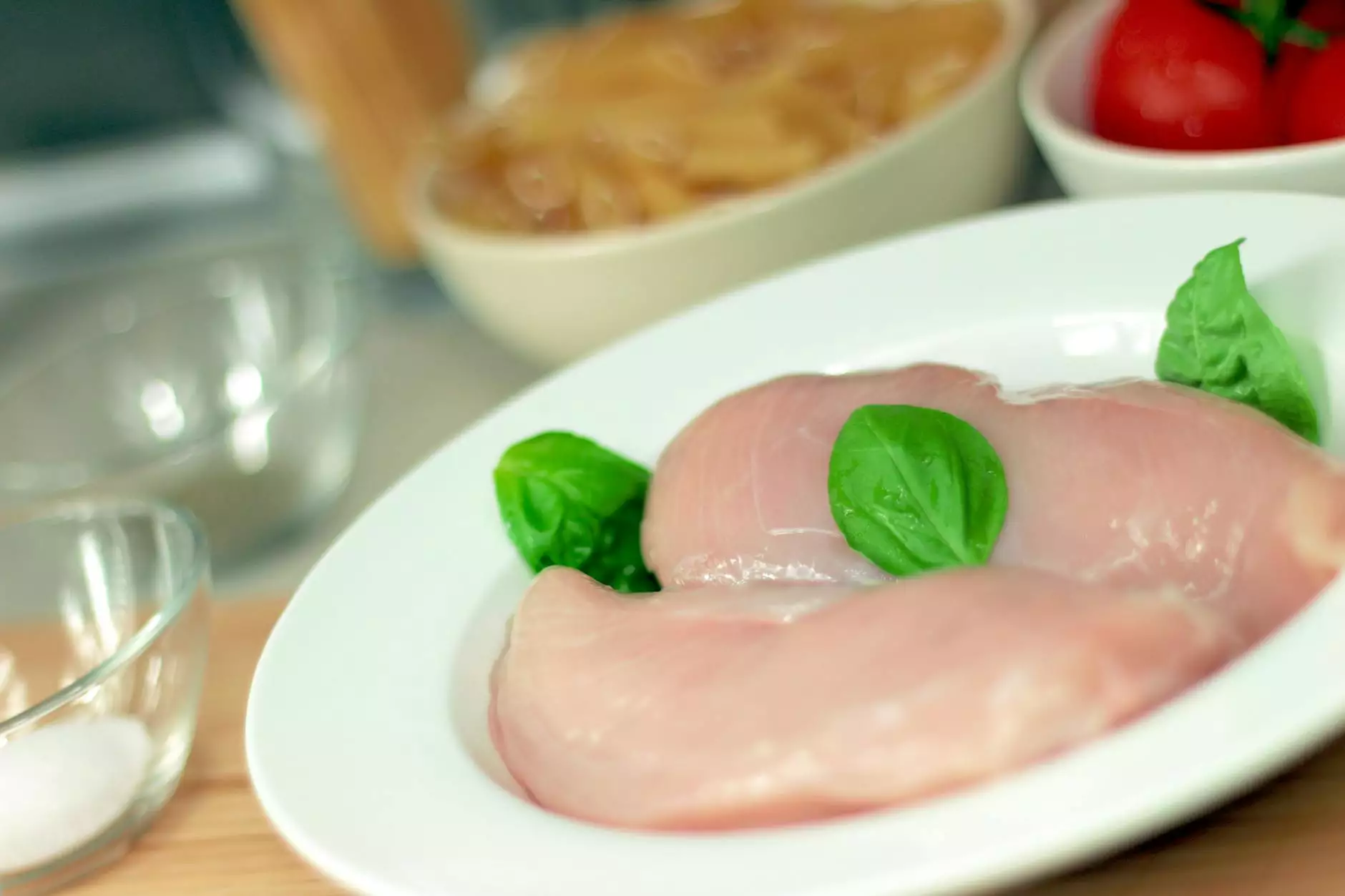Halal Chicken Brazil: Understanding the Market and Opportunities

In recent years, the demand for halal chicken in Brazil has significantly increased, fueled by growing consumer awareness and the expansion of international markets. As the world becomes more interconnected, the necessity for high-quality and ethically sourced food products has never been more critical. This article delves into the dynamics of the halal chicken industry in Brazil, exploring its potential for growth, the certification process, and the key players in the market.
The Rise of Halal Chicken Demand in Brazil
Brazil, known for its thriving agricultural sector, has positioned itself as a leading exporter of chicken. The integration of halal practices within this sector has opened doors to new markets, particularly in Muslim-majority countries. The increasing population of Muslims in Brazil, coupled with the demand from export markets, has catalyzed the growth of the halal chicken industry.
Understanding Halal: What It Means for Consumers
The term halal means "permissible" in Arabic. For meat to be considered halal, it must meet specific requirements as per Islamic law. This includes:
- The animal must be healthy at the time of slaughter.
- The slaughtering process must be carried out by a Muslim who invokes the name of Allah.
- The blood must be fully drained from the carcass.
These conditions ensure that halal chicken is not only a dietary choice for many but also aligns with ethical treatment of animals, making it appealing to a broader audience, including non-Muslims who value humane practices.
Brazilian Poultry Exporters and the Halal Certification
Brazil is one of the largest poultry exporters globally, with a robust infrastructure supporting its agricultural sector. The halal certification process in Brazil involves rigorous audits and compliance with both local government regulations and Islamic guidelines. Key Brazilian poultry exporters, such as Frozen Chicken Group, have adopted halal practices to meet the rising demand.
The Halal Certification Process in Brazil
Achieving halal certification involves several crucial steps, including:
- Compliance with hygiene and food safety standards.
- Requiring slaughterhouses to maintain dedicated halal processing lines.
- Regular inspections by recognized halal certifying bodies.
These steps are vital in ensuring that the halal chicken produced is of the highest quality and complies with Muslim dietary laws. It's important for consumers and businesses alike to understand these processes to make informed choices.
Key Players in the Halal Chicken Market in Brazil
Various companies in Brazil are leading the way in the halal chicken market. With their expertise in poultry farming and commitment to halal practices, these organizations have established a strong foothold in both national and international markets. Notable players include:
- Frozen Chicken Group - A leader in exporting halal chicken in bulk.
- BRF S.A. - One of the largest food producers in Brazil, offering a wide range of halal-certified products.
- JBS S.A. - A global leader in protein production, significant investments in halal sectors.
These companies not only contribute to the economy but also help raise awareness of halal practices among Brazilian consumers.
Benefits of Halal Chicken for International Trade
The significance of halal chicken extends beyond dietary laws. It represents a $1.1 trillion market worldwide, and Brazil has recognized the importance of tapping into this lucrative segment. The benefits of engaging in halal chicken trade include:
- Access to a Larger Market: Halal certification allows Brazilian exporters to access diverse markets, especially in the Middle East, Asia, and North Africa.
- Enhanced Brand Image: Companies that adopt ethical practices, such as halal certification, often enjoy a positive brand image and increased customer loyalty.
- Increased Sales Opportunities: With the growing consumer base for halal products, businesses can explore new revenue streams and expand their operations.
Challenges Facing the Halal Chicken Industry in Brazil
Despite the promising landscape for halal chicken in Brazil, there are several challenges that stakeholders must overcome:
- Regulatory Hurdles: Navigating the complex landscape of food safety and halal certification can be challenging for new entrants.
- Consumer Awareness: There is a need for increased awareness and education among the Brazilian population regarding halal products.
- Supply Chain Issues: Maintaining a consistent supply of halal chicken that meets both quality and certification standards can be difficult.
Addressing these challenges will require concerted effort from businesses, regulators, and community leaders to foster growth in the halal chicken sector.
The Future of Halal Chicken in Brazil
The future of halal chicken in Brazil looks promising. With strategic investments, consumer interest, and export opportunities, the halal poultry market is expected to grow. Several factors contribute to this optimism:
- Increasing Muslim Population: The growing Muslim community in Brazil will continue to drive demand for halal products.
- Global Dietary Trends: More consumers are choosing diets that align with ethical and health-conscious food production, benefiting halal producers.
- Government Support: Initiatives aimed at supporting agricultural exports and international trade will benefit the halal sector.
Conclusion
In conclusion, the halal chicken market in Brazil is a dynamic and expanding sector with vast potential. As Frozen Chicken Group and other key players navigate the challenges and seize opportunities, they contribute not only to the economy but also to the ethical treatment of animals and the satisfaction of consumers' dietary preferences. The integration of halal practices within Brazil's poultry sector is set to flourish, making Brazil a prime player in the global halal chicken market.
To learn more about high-quality halal chicken products and to explore bulk purchasing options, visit frozenchickengroup.com.
halal chicken brazil


